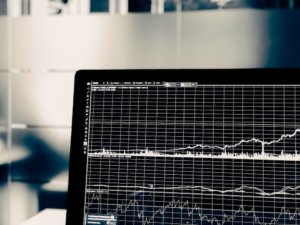Former Deutsche Bank precious metals traders fail to dismiss “spoofing” charges
Judge John J. Tharp, Jr. of the Illinois Northern District Court nixed an attempt by James Vorley and Cedric Chanu to dismiss the indictment against them.

In the face of the broad industry support that ex-Deutsche Bank traders James Vorley and Cedric Chanu have received in their efforts to dismiss the allegations against them, the Court has disagreed with the defendants.
Earlier today, Judge John J. Tharp, Jr. of the Illinois Northern District Court signed a Memorandum Opinion and Order, denying the defendants’ motion to dismiss the indictment against them.
The defendants in this case – James Vorley and Cedric Chanu, were precious metals traders at Deutsche Bank. The indictment alleges that, from December 2009 through November 2011, Vorley and Chanu engaged in a scheme to defraud other traders on the Commodity Exchange Inc. (COMEX) that involved interstate wire communications.
COMEX used an electronic trading system called “Globex,” which allowed traders to trade futures contracts from anywhere in the world. During the relevant period, Vorley worked in London; Chanu worked first in London and later Singapore. The Globex servers, however, were located in Chicago and Aurora, Illinois, and that was the basis for venue in the Northern District of Illinois.
The indictment alleges that the duo sought “to deceive other traders by creating and communicating materially false and misleading information regarding supply or demand, in order to induce other traders into trading precious metals futures contracts at prices, quantities, and times at which they would not have otherwise traded, in order to make money and avoid losses for the coconspirators.”
Vorley and Chanu would place one or more orders for precious metals futures contracts on one side of the market (bid or offer), intending to cancel the orders before they could be accepted by other traders. The indictment refers to such orders as “Fraudulent Orders” because the defendants did not intend to execute them; instead, these orders were “intended. . . to deceive other traders” about the true supply or demand for the commodity in question. The indictment alleges that the Spoofing Orders “were material misrepresentations” regarding the defendants’ intent to trade those orders.
Contemporaneously with placing the Spoofing Orders, the defendants placed what are referred to as “Primary Orders” on the opposite side of the market. Unlike the Spoofing Orders, the defendants intended to execute the Primary Orders, which involved trades that were of smaller volume.
Vorley and Chanu allegedly profited from the scheme because the Spoofing Orders would deceive other traders about supply and demand, misleading them about the likely direction of the commodity’s price and making the defendants’ Primary Orders, on the other side of the market, look attractive.
Let’s recall that, Vorley and Chanu have moved pursuant to Federal Rule of Criminal Procedure 12(b)(3)(B)(v) to dismiss the indictment for failure to state an offense. They also asserted, in the alternative, that the wire fraud statute would be unconstitutionally vague if construed to extend to the defendants’ trading activity. In addition, several business and industry organizations have filed briefs as amici curiae in support of the defendants’ arguments that the alleged spoofing scheme does not constitute wire fraud.
In the Opinion and Order, issued today, the Judge noted that this case presents the question of whether a scheme to defraud commodities traders by placing “spoofing” orders—orders that the trader intends to withdraw before they can be filled— can constitute wire fraud.
The defendants say “no”, because wire fraud requires the making of a false statement – an express misrepresentation – and the indictment alleges none. The Judge argues “that is not the law”. He notes that the Seventh Circuit has already held that spoofing can constitute a “scheme to defraud” under the commodities fraud statute.
“As there is no material difference between a scheme to defraud under either statute, the answer to the question presented is, yes: the alleged spoofing scheme alleged in the indictment adequately charges violations of the wire fraud statute”, the Judge says.
And given that the statute has long been recognized to reach implied misrepresentations, and also requires proof of intent to defraud, the defendants’ contention that the statute is unconstitutionally vague as applied to the scheme alleged also fails. Vorley and Chanu also mount a challenge to whether their spoofing orders were, in fact, misleading and material, but those are questions for trial, the Judge explains.
Accordingly, the defendants’ motion to dismiss the indictment was denied.









